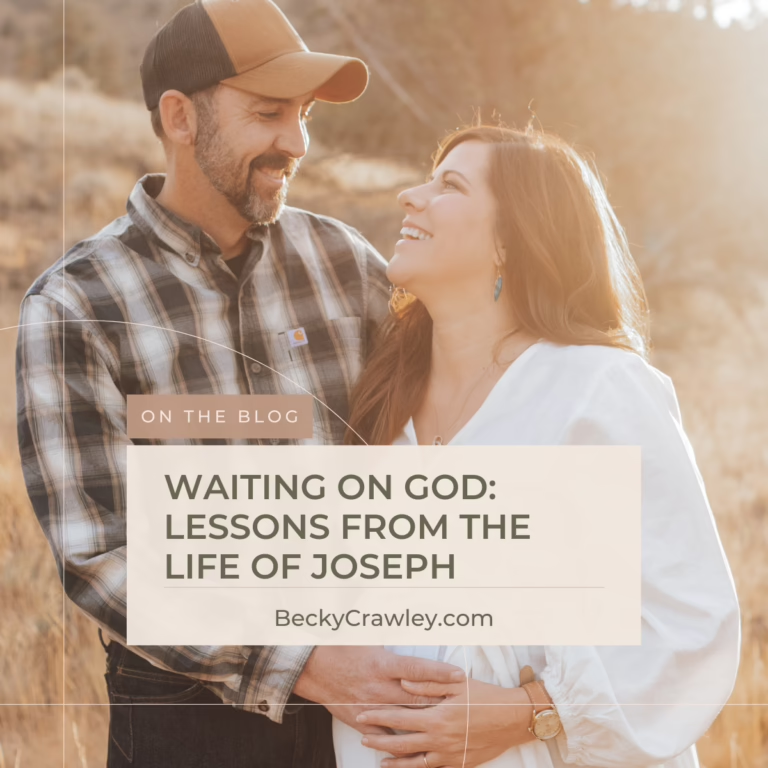There’s a big conversation happening today about the value of being independent, especially for women. We hear it all the time: “Be self-sufficient,” “Empower yourself,” “Don’t rely on anyone.” But as believers, this idea of independence might not line up completely with how we’re called to live in Jesus.
Recently, I did a little experiment and asked ChatGPT, “Is it valuable to be an independent woman?” Unsurprisingly, it had opinions. Let’s walk through what it said and unpack how that lines up with biblical truths.
ChatGPT’s Take on Independence:
1. Self-Sufficiency
“Independence fosters self-sufficiency, allowing women to take care of their needs without relying on others. This can lead to greater confidence and self-esteem.”
2. Empowerment
“Independence empowers women to make their own decisions and pursue their goals, allowing them to shape their lives according to their values and aspirations.”
3. Financial Stability
“Financial independence is crucial for security and freedom. It allows women to make choices without relying on others.”
4. Role Modeling
“Independent women serve as role models for younger generations, showing that they can achieve goals and live fulfilling lives.”
5. Healthy Relationships
“Independence in relationships promotes equality and respect, leading to balanced and healthy dynamics.”
6. Personal Growth
“Independence encourages learning new skills, taking on challenges, and adapting to change.”
7. Resilience
“Independent women develop resilience by overcoming obstacles on their own, which is valuable in both personal and professional contexts.”
For all the good we see in independence, there's a greater freedom and power available to us when we give ourselves to dependence on Jesus.
Becky Crawley Tweet
Discussion: The Good and The Caution
What’s Good in This List?
There’s definitely value in independence! Personal growth, resilience, and taking responsibility are important qualities, and we can all agree that it’s good to build confidence, learn new skills, and strive for financial security.
But as Steph and I talked through these points, we noticed something: some of these values can be a slippery slope toward taking control of our lives away from God.
When Does Independence Become a Desire for Control?
While self-sufficiency and empowerment sound great, we must ask ourselves: Is our desire for independence actually a way to keep control, rather than surrender it to Jesus? Independence in the world’s eyes can sometimes turn into a subtle rejection of our need for God. Instead of relying on Him, we might start relying solely on ourselves.
Jesus tells us to give up control—not to be powerless, but to lean into His power. When we live completely independent of Him, we miss out on the fullness of a life with Him.
What the Bible Says About Dependence
The Bible has a lot to say about freedom—freedom from the love of money (Hebrews 13:5), freedom from pride (Romans 12:16), and freedom from fear (2 Timothy 1:7). But that freedom doesn’t mean we’re free to go it alone. The Bible also emphasizes our need for dependence on God.
Jeremiah 17:5,7:
“This is what the Lord says: ‘Cursed is the one who trusts in man, who draws strength from mere flesh and whose heart turns away from the Lord. But blessed is the one who trusts in the Lord, whose confidence is in him.’”
Psalm 56:3-4:
“When I am afraid, I put my trust in you. In God, whose word I praise—in God I trust and am not afraid. What can mere mortals do to me?”
These verses make it clear that independence from God is not a blessing. In fact, it can lead to feeling burdened, fearful, and directionless. Dependence on Jesus is where we find true freedom and strength.
Dependence Is Not Weakness—It’s Power
Contrary to what the world tells us, dependence on Jesus doesn’t make us weak—it actually empowers us. When we lean into Him, we start bearing the fruit of the Spirit in our lives: love, joy, peace, patience, kindness, goodness, faithfulness, gentleness, and self-control (Galatians 5:22-26). These fruits come from a life surrendered to God’s leading, not from striving on our own.
In John 15, Jesus says, “Abide in me, and I in you. As the branch cannot bear fruit by itself, unless it abides in the vine, neither can you, unless you abide in me.” Independence might grow self-reliance, but dependence on Jesus grows fruit that lasts.
Reflection: Where Is Your Independence an Asset, and Where Is It a Control Issue?
As you think about the value of independence, we want to challenge you this week:
Where is independence an asset in your life? Maybe in your work ethic, your resilience, or your ability to manage finances.
Where is independence keeping you from giving control back to Jesus? Are there areas where your self-reliance has pushed Him out? It could be in relationships, your career, or even in how you handle stress and anxiety.
Take some time to sit with these questions and ask Jesus to reveal where He wants you to depend on Him.
Final Thought: Independence has its place, but a life fully dependent on Jesus is where true freedom and power lie. Ask Him today to help you lean into His strength and surrender control where you need to.


